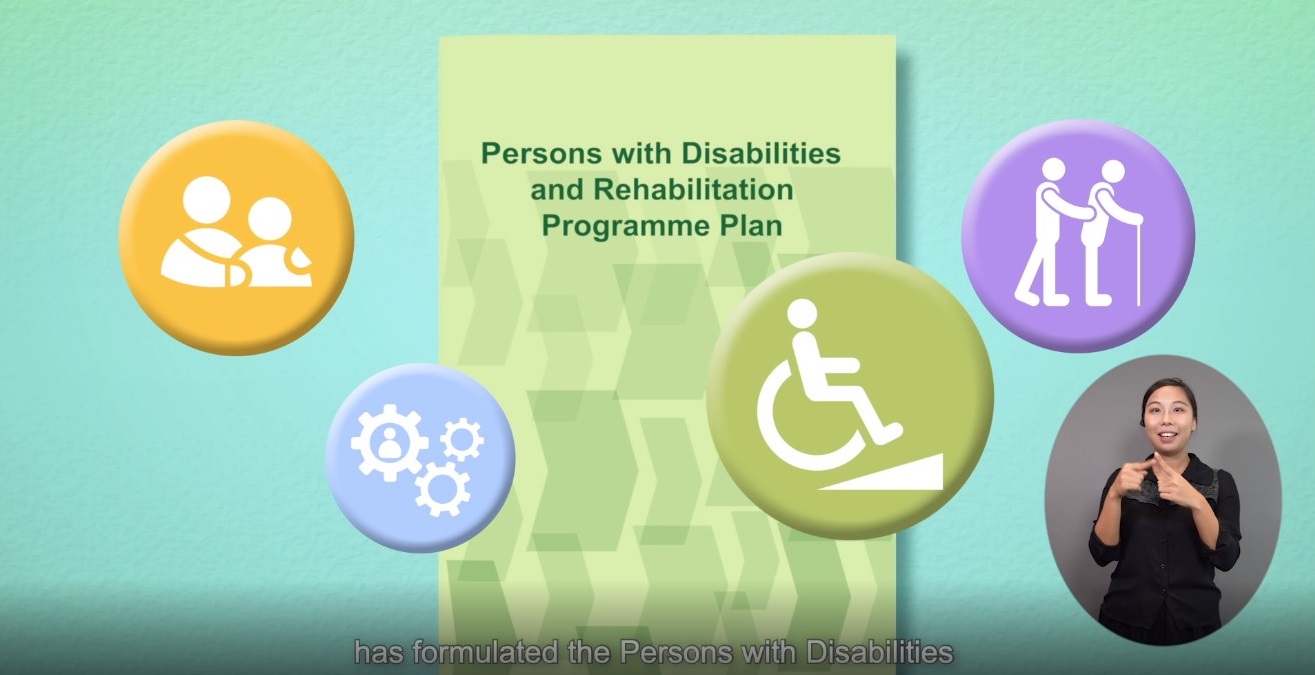Press Releases
EOC Responds to Persons with Disabilities and Rehabilitation Programme Plan
09/07/2020
The Equal Opportunities Commission (EOC) welcomes the Persons with Disabilities and Rehabilitation Programme Plan (RPP) published by the Labour and Welfare Bureau last week. The RPP formulated by the Rehabilitation Advisory Committee (RAC) outlines 62 strategic recommendations related to persons with disabilities (PWDs). The EOC is pleased that recommendations made by organisations of PWDs and the general public during the consultation have been incorporated into the RPP, such as changing the name from the Rehabilitation Programme Plan to the Persons with Disabilities and Rehabilitation Programme Plan (RPP) to highlight the importance of issues facing PWDs; formalising the establishment of the Special Needs Trust for people with intellectual disabilities, mental disorders or autism addressed at EOC’s Seminar on Rights and Challenges of Persons with Intellectual Disabilities in 2018; enhancing the statutory staffing requirements of residential care homes (RCHs), upward adjustment of the statutory minimum area of floor space per resident, strengthening the accountability of licensees of RCHs; engaging the EOC to strengthen publicity and promotion of the guidance on reasonable accommodation and enhance employers' understanding of the guidance and the promotion of reasonable accommodation in the workplace; as well as addressing the need for participation of PWDs in recreational, sports and cultural arts activities in the RPP for the first time.
In addition, the EOC would like to make a few suggestions to the Government on the implementation of the RPP:
1. Support for families and caregivers
The EOC hopes that the Government can expeditiously implement the support measures for caregivers raised in the RPP, including enhancing service capacity of Parents/Relatives Resources Centres, increasing residential respite places, consolidating carer's allowance with pilot schemes; and also develop a comprehensive plan to identify the support needed by various caregivers, provide appropriate services and formulate desirable policies. For instance, some caregivers are in need of better support to take care of elderly family members who choose the option to age in place, while some are in need of financial support or legal protection to take leave in order to look after family members who have an urgent need. Furthermore, the Government may consider providing special support to the unpaid caregivers who are also an elderly or PWD.
2. Support for students with special education needs
The EOC recommends that the Government considers expanding the scope of relevant support to tertiary students with special educational needs, and providing subsidies to each tertiary institution (including private institutions) to set up an equal opportunity unit to support students with disabilities and handle other equal opportunity matters, as well as reduce barriers for students with disabilities to further their studies at the university. For example, it can build a disability database in order to assist tertiary institution staff with effective support measures for students.
3. Universal design and accessibility
Currently, pre-1997 buildings were not required to incorporate barrier-free facilities under the existing legislation and policies. The EOC proposes that the Government should consider legislating for gradual incorporation of barrier-free facilities and universal design concepts to all pre-1997 buildings where it is practicable to do so. Besides, the Government should also consider launching a dedicated fund for subsidized barrier-free access and facilities improvement programme under the existing scheme "Operation Building Bright". The scheme provides special allowance for owners of aged buildings in installing barrier-free facilities, so as to step up the promotion of barrier-free access and facility improvement programme for pre-1997 buildings.
4. Integrated Community Centres for Mental Wellness (ICCMWs)
The EOC has suggested the Planning Department not to classify ICCMWs as “Group B Sensitive Community Facilities” in the Hong Kong Planning Standards and Guidelines, a Government manual of criteria for determining the requirements of various land uses and facilities, to avoid labelling or promoting discrimination against people with mental illnesses or in recovery of mental illnesses. Therefore, the EOC hopes that the Government should strive to remove the stigma of ICCMWs while reviewing the target service users and operational mode of the ICCMWs and investing more resources in such community centres.
In general, the EOC believes that the latest RPP will effectively promote social inclusion of PWDs on the basis of equal opportunities. The EOC will closely monitor the implementation of the RPP and will provide our views and suggestions to the Government when appropriate.
--------------------------------
Equal Opportunities Commission
9 July 2020

Persons with Disabilities and Rehabilitation Programme Plan

